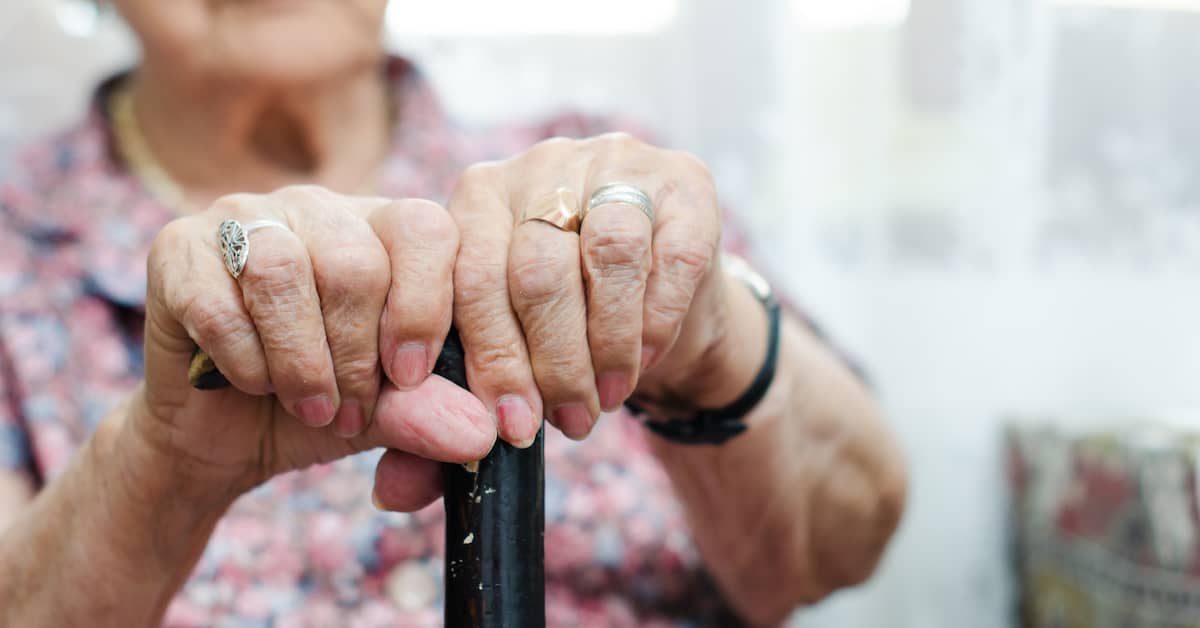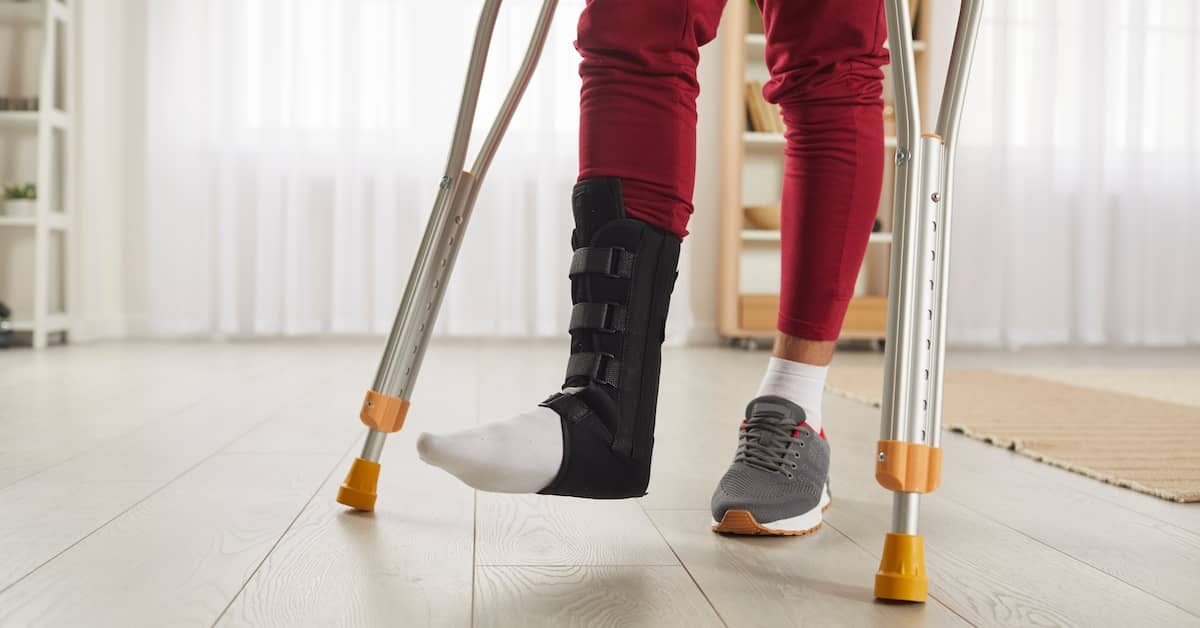How To File a Nursing Home Complaint
Learning how to file a nursing home complaint is the last thing you want to think about because it’s the last thing you want to have to do. When we put our loved ones in nursing homes, assisted living centers, and other facilities, it is because they need more help than we can personally give them.
We expect our loved ones to be cared for with respect, empathy, patience, and skill. To discover that they have been neglected or abused fills us with anger, guilt, and sorrow. We entrusted the facility and its staff with our family. If they’ve breached that trust and injured our loved one in any way, there needs to be justice.
Filing a nursing home complaint is important to hold the wrongdoers accountable, but it isn’t the only form of redress available. If you or a cherished family member have been the victim of neglect or abuse, contacting a lawyer is in your best interest. Call Colling Gilbert Wright today at (407) 712-7300 for a FREE case evaluation. Our Orlando nursing home abuse lawyers serve clients throughout Florida.
Reasons for Filing a Nursing Home Complaint
Florida has a prominent and cherished aged population. Sadly, more older people suffer severe injuries or pass away due to neglect and abuse in nursing homes than we could have imagined. A review and analysis published in the National Library of Medicine estimated that 64.2% of staff in nursing homes admitted to elder abuse throughout 2018.
Unfortunately, there isn’t enough information on what atrocities our older population suffers. Some people are too afraid to report neglect or abuse; others may not fully understand what is happening. It is up to all of us to remain vigilant and pursue justice whenever possible.
First, we must clarify the difference between nursing home neglect and nursing home abuse. Neglect involves a failure to provide a patient with the proper level of care. This is typically the result of negligence rather than malice. Abuse, however, is almost always an intentional wrongdoing that can often result in criminal charges in addition to civil liability.
Nursing Home Neglect
Neglect falls into three categories: physical, emotional, and/or medical. Often, you will see the neglect in a combination of forms.
Physical neglect can mean:
- Bedsores
- Failure to provide residents with adequate nutrition & hydration
- Lack of supervision, resulting in injury or residents wandering away
- Failure to assist residents with personal hygiene
- Insufficient standards of cleanliness in living quarters
Emotional neglect may display itself as your loved one being allowed to isolate to a detrimental level. Or your family member’s concerns and complaints may be repeatedly ignored.
Medical neglect often involves issues with medications like:
- Giving the wrong medication
- Providing wrong dosages
- Failing to ensure the resident has taken their medication
- Unreliable administration of medication
Medical neglect can also involve missing diagnoses of illnesses, injuries, and emergencies due to inadequate supervision. Unfortunately, with our older loved ones, things can go downhill swiftly. If an illness or injury isn’t spotted early, it can quickly become life-threatening.
Nursing Home Abuse
Nursing home abuse falls into four categories: physical, emotional, sexual, and financial. An intentional act of wrongdoing perpetrated on a member of the aged population is abnormally cruel. Often, our older loved ones cannot care properly for themselves and rely heavily on the facility staff. They may be unable to defend themselves or report their abuse.
Physical abuse is the cause of bodily harm by the intentional use of force. Examples may include:
- Bruises or cuts
- Broken bones
- Signs of excessive restraint
Emotional abuse is the intentional infliction of mental pain, fear, or distress. This can be harder to identify than physical or sexual abuse. Your loved one may exhibit:
- Changes in behavior
- Withdrawal
- Increased anxiety
- Depression
Sexual abuse is defined as forced or unwanted sexual contact. This depraved offense may be evident through the following:
- Bruises near genitalia or breasts
- Unexplained STDs
- Vaginal or anal bleeding
- Changes in behavior
- Depression
- Withdrawal & anxiety
Financial abuse is considered any unauthorized or improper use of a resident’s financial resources. Inquire further if there are:
- Unexplained withdrawals or charges
- Missing credit cards or checkbooks
If you are a witness or you notice the signs of negligence or abuse in a nursing home, assisted living center, or other facility, it is crucial that you file a complaint and seek the guidance of a nursing home abuse lawyer immediately.
Read More: What Is Resident Abuse in Nursing Homes?
Signs that You Need to File a Nursing Home Complaint
For the sake of your family member, it is crucial to pay attention to signs that they may be the victims of neglect or abuse. Though we expect their safety to be a priority for facility staff, we must advocate for our loved ones when they can’t do it themselves.
Warning signs to keep a lookout for if you have a loved one in a nursing home, assisted living center, or other facility:
- Poor hygiene
- Bedsores
- Dehydration
- Unclean living quarters
- Unsanitary conditions
- Severe weight loss & malnutrition
- Missing money or personal property
- Sudden changes in behavior
- Anxiety, depression, or withdrawal
- Heavy sedation or under medication
- Refusal to speak in front of facility staff
- Negligent security
- Inattentive staff who fail to respond to residents or communicate with family
- Illegal restraints
- Torn, soiled, and/or bloodied clothing
- Frequent bruises or cuts
- Infections & sepsis
- Unexplained injuries or death
Please consult a trusted nursing home lawyer if you notice any warning signs. It is better to err on the side of vigilance when it comes to the safety of our older loved ones.
Read More: What Are the 3 Most Common Complaints About Nursing Homes?
How to File Your Complaint
1. If your complaint involves an emergency, call 911 without hesitation—your loved one’s health is your priority.
2. Document the incident as best you can, and make and keep copies of all documentation.
- Take photos
- Get a detailed description
- Talk to witnesses
- Record the facility & caretaker information
- Obtain copies of all medical records
You may have to pay for medical records, but you have a right to obtain copies.
3. If the Florida Agency for Health Care Administration (AHCA) regulates your family member’s nursing home, assisted living center, or other facility, file a complaint through their administration’s website or call (888) 419-3456. You may remain anonymous.
- Give detailed information & the names of all parties involved.
- The complaint will go to the Complaint Administration Unit for review.
- If AHCA is the proper regulatory authority, they will investigate.
- When a resident is in immediate danger, the complaint will be investigated within 2 days of filing.
- After the assessment, the complainant will be notified of the inspection’s outcome (unless they reported anonymously).
4. You may also file a complaint with the Florida Department of Health (FDOH) by visiting their website and clicking on the Florida Health Care Portal button.
- Send a certified letter to your doctor requesting a copy of your medical records, and keep the green card as proof. If you do not receive these records within 30 business days, file a complaint with the FDOH.
- You cannot file your nursing home abuse claim over the phone because it must be signed. You can file through the portal or in person. You may file anonymously. However, the FDOH may not inform you of the progress of the complaint.
- There is generally a statute of limitations of 6 years on these complaints. The entire investigation must be completed within that 6 years. There are exceptions.
- Even if the offenders are disciplined, penalties are limited. You must consult with a private nursing home abuse attorney to pursue maximum justice for the neglect or abuse your loved one has suffered.
The complaint process can be confusing, frustrating, and take more time than your family member might have. Don’t waste a moment if you suspect your loved one may be the victim of abuse or neglect. Contact an experienced lawyer who can help you file a nursing home complaint and fight for the rights of your cherished family member.
When Should You Contact a Florida Nursing Home Abuse Attorney?
If you suspect nursing home negligence or abuse, consider it an emergency. You must advocate for your aged loved ones. Any sort of setback can be life-threatening when we reach a certain age.
Though there are state agencies that will handle your complaint, it can take time you don’t have, and they are not committed to your individual rights and interests. Hiring an experienced, compassionate nursing home abuse lawyer is essential to keep your loved ones safe and identify your options for holding the nursing home accountable.
Few law firms in Florida have more experience with nursing home negligence claims than Colling Gilbert Wright. Our nursing home abuse attorneys have the knowledge and resources to investigate your case thoroughly and the tenacity to pursue the full compensation you and your family deserve.
Please contact Colling Gilbert Wright today for a FREE case evaluation. Our nursing home abuse lawyers serve clients in Orlando and throughout Florida.








